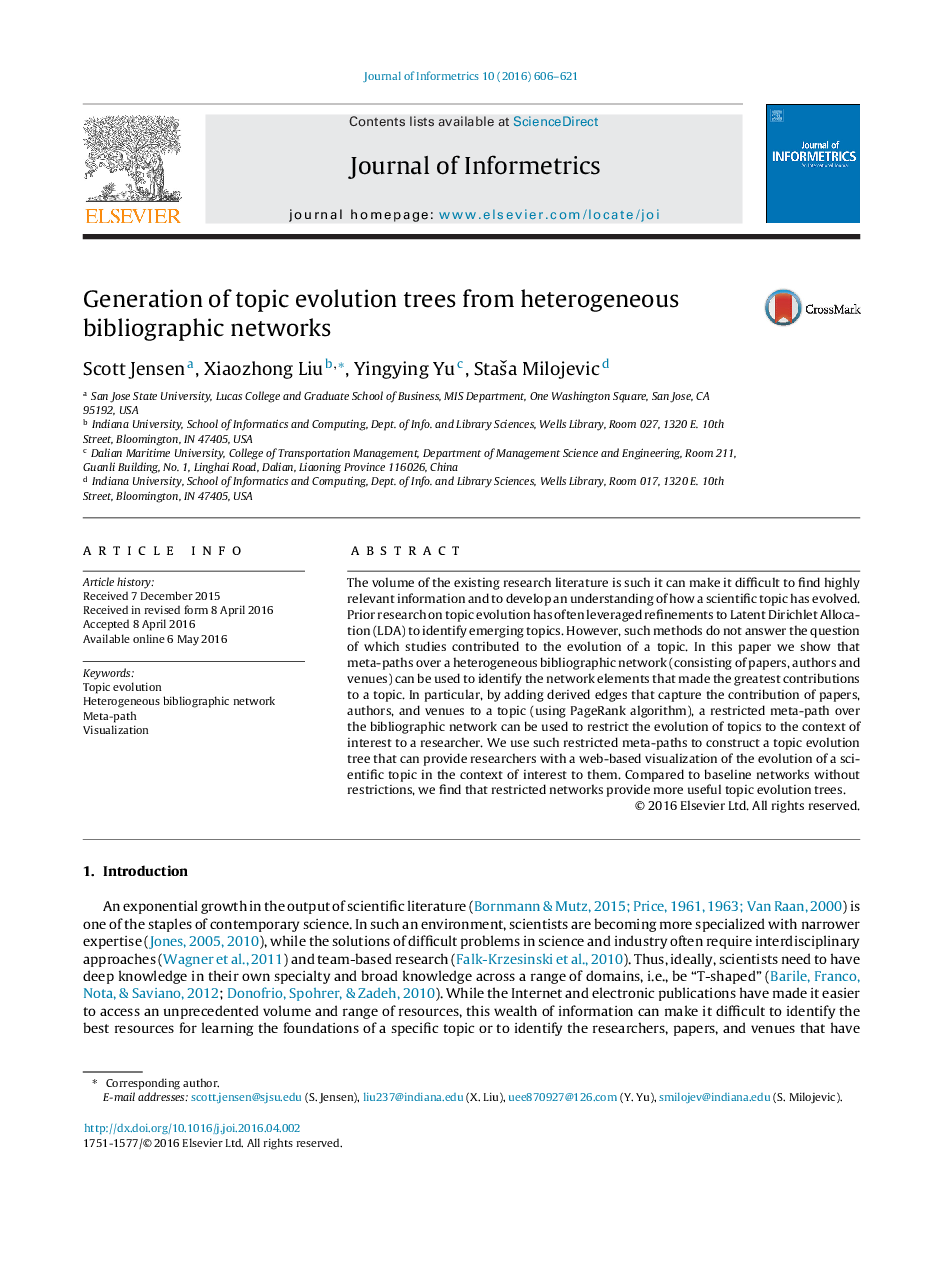| Article ID | Journal | Published Year | Pages | File Type |
|---|---|---|---|---|
| 523377 | Journal of Informetrics | 2016 | 16 Pages |
•Heterogeneous paper networks are useful for construction of topic evolution trees.•Meta-path restrictions based on contribution enable context-dependent results.•Context-sensitive topic evolution trees enhanced information retrieval results.
The volume of the existing research literature is such it can make it difficult to find highly relevant information and to develop an understanding of how a scientific topic has evolved. Prior research on topic evolution has often leveraged refinements to Latent Dirichlet Allocation (LDA) to identify emerging topics. However, such methods do not answer the question of which studies contributed to the evolution of a topic. In this paper we show that meta-paths over a heterogeneous bibliographic network (consisting of papers, authors and venues) can be used to identify the network elements that made the greatest contributions to a topic. In particular, by adding derived edges that capture the contribution of papers, authors, and venues to a topic (using PageRank algorithm), a restricted meta-path over the bibliographic network can be used to restrict the evolution of topics to the context of interest to a researcher. We use such restricted meta-paths to construct a topic evolution tree that can provide researchers with a web-based visualization of the evolution of a scientific topic in the context of interest to them. Compared to baseline networks without restrictions, we find that restricted networks provide more useful topic evolution trees.
